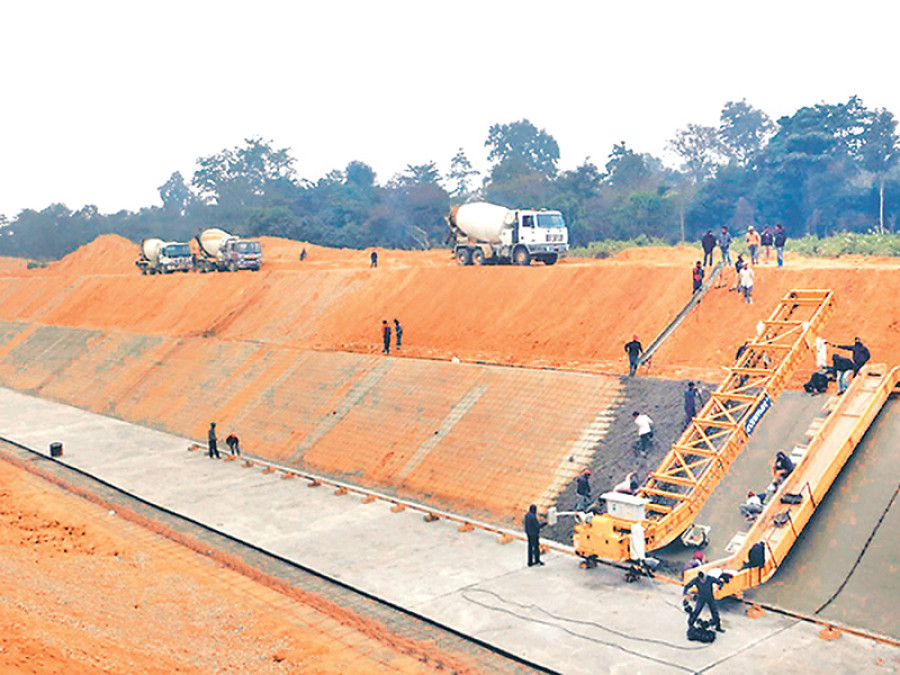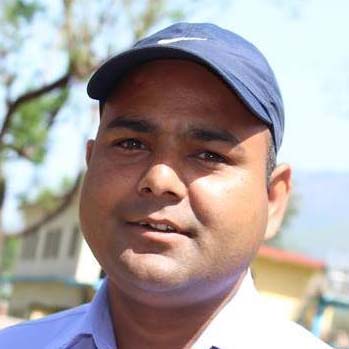Money
Contractor’s recklessness delays canal construction
The delay in construction of one of the crucial subsidiary canals of the Sikta Irrigation Project, a national pride project which aims to irrigate 80 percent of arable land in Banke district, has disappointed farmers who are currently depending on skies to water thousands of hectares of fields.
Janak Nepal & Krishna Prasad Gautam
The delay in construction of one of the crucial subsidiary canals of the Sikta Irrigation Project, a national pride project which aims to irrigate 80 percent of arable land in Banke district, has disappointed farmers who are currently depending on skies to water thousands of hectares of fields.
The government in June 2016 had appointed joint venture between Pappu and Coastal construction companies to build 23.2km Duduwa subsidiary canal at a cost of Rs980 million. The joint venture was supposed to complete the work within 28 months of its appointment. But since then, only 2 percent of the construction work has been completed. At this pace, the contractor will not be able to complete all the works within the deadline, according to project officials.
“Our target was to use this canal to deliver water to the fields next winter. But the contractor has been delaying works citing reasons such as problems in procurement of stones, delay in cutting down of trees, shortage of fuel and delay in relocation of electricity poles,” said Prakash Karki, a senior division engineer of the project, adding, “When contractors face problems, we request them to contact us immediately. But this contractor hasn’t done so. It produces a list of problems only when we seek updates on project construction.”
It is also said the contractor has not been conducting its work as per the standard set by the project office. “The contractor has so far removed earth from 15km segment of 23.2km canal. But this work does not meet our standard,” said Karki. “We have informed the contractor about this, but it has not taken measures to rectify its mistakes.”
Duduwa subsidiary canal is expected to provide irrigation facility to around 16,000 hectares of arable land in Kohalpur Municipality, Manikapur, Hirminiya and Ranjha of Nepalgunj Sub-metropolitan city, and parts of Duduwa, Baijnath and Khajura rural municipalities. This makes it the biggest subsidiary canal of the Sikta Irrigation Project.
But the delay in construction of this canal has prevented concerned authorities from releasing water at full capacity from one of the main canals which has already been built, according to Karki. This has affected thousands of farmers during wheat farming season.
The construction of Sikta Irrigation Project, which aims to irrigate around 42,766 hectares of arable land in Banke district, began 13 years ago. Over these years, many ministers have visited the construction site and promised to put the project in their priority list so that construction works could be accelerated. But the government-owned project, which has consumed over Rs12 billion so far, has not been completed till date because of problems like carelessness of contractors, dispute over compensation for land and frequent change in project chiefs.
So far, all works related to construction of dam have been completed. Also, construction of 45km western main canal, which stretches from Agaiya to Jethinala, has been completed. The canal is currently releasing 3 cubic metres of water per second. This has provided irrigation facility to around 500 hectares of land in eastern part of the district and to around 500 to 1,000 hectares of land in the western part of the district. The water released during wheat farming season has provided relief to farmers, according to Bandhuram Khatik, a farmer of Nepalgunj metropolitan city.
The project office has also started construction of 53.5km canal that stretches from Agaiya to Katkuiya; and the process of selecting contractors for construction of various other sections of canals has been initiated. Also, 80 percent construction work of 19.6km Sindhiniya section of canal has been completed. Once this work is complete, irrigation facility can be provided to 2,100 hectares of arable land.
“All these works are being carried out with the aim of completing the entire project within next three years,” Karki said. “Once the project is complete, 50 cubic metres of water can be released per second.”




 21.12°C Kathmandu
21.12°C Kathmandu















